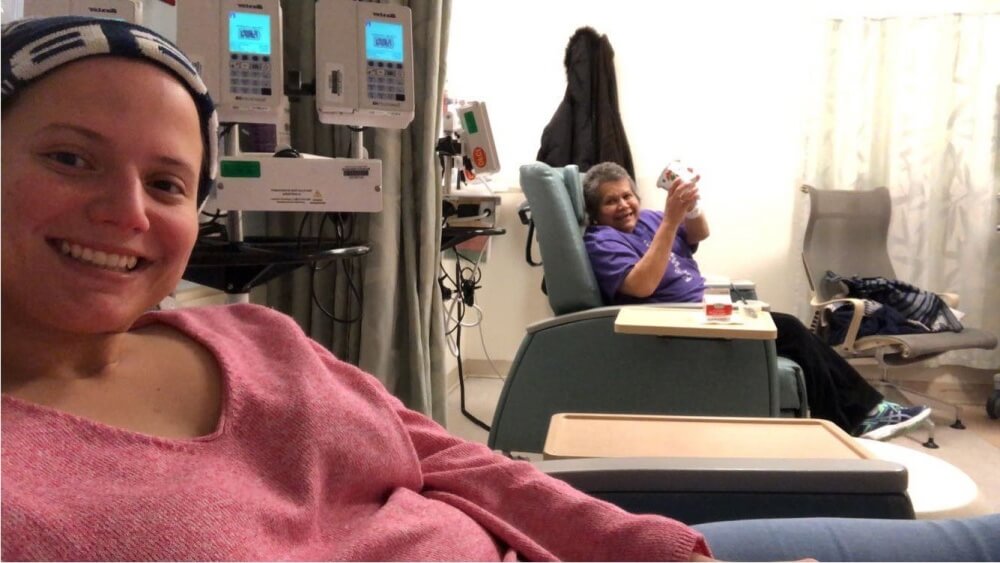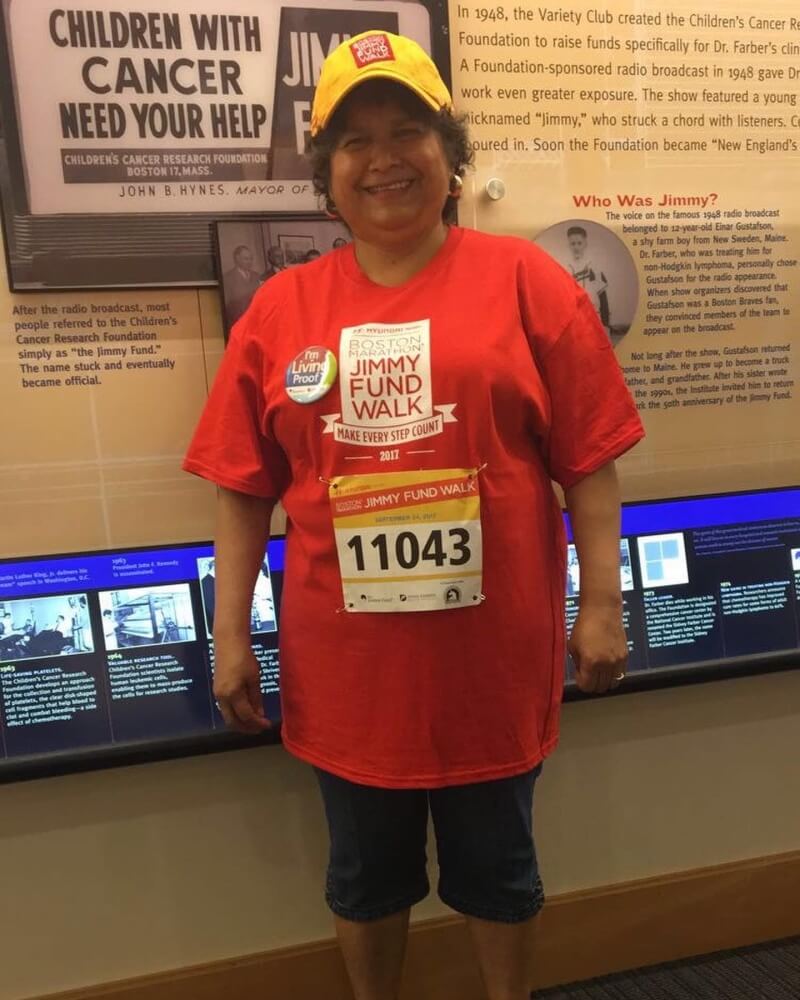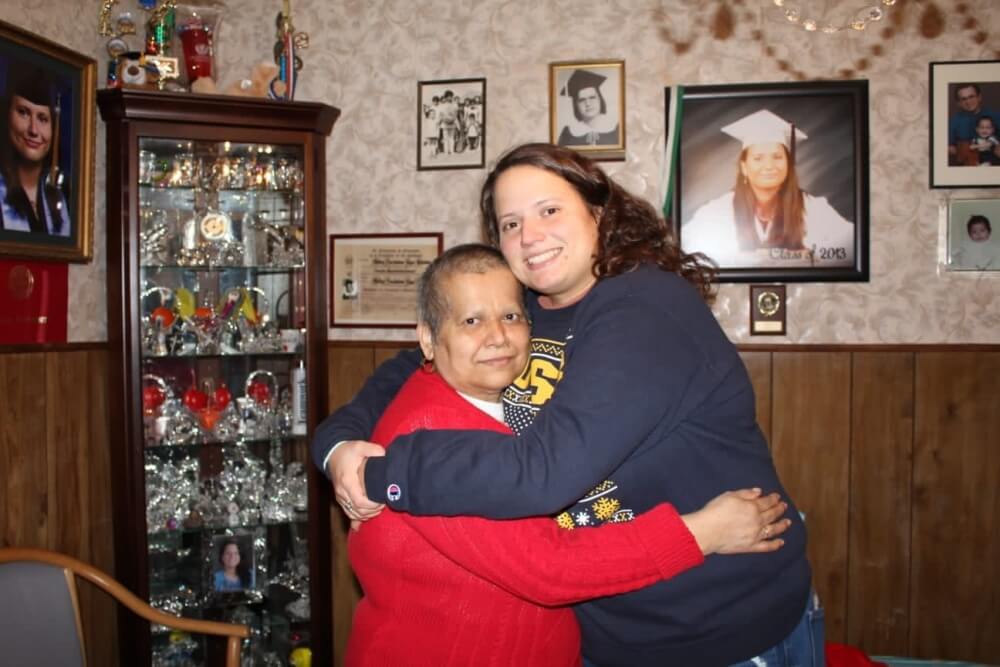By Julia Segovia
By the time I found out that my mother, Melbey Segovia, had stage III ovarian cancer, she had already had a hysterectomy and started chemotherapy. It was three months after her Feb. 2016 diagnosis.
At first I felt a lot of anger around Mom not telling me sooner, but then I understood that she was just trying to protect me. She was living in Boston with my grandmother at the time, and I was going to college in California. Mom knew that as soon as she told me, I would want to leave school to be with her, and she was right. So she kept it a secret.
The cancer went into remission later that year, and Mom continued having regular checkups with Susana Campos, MD, MPH, in the Gynecologic Oncology Program at Dana-Farber’s Susan F. Smith Center for Women’s Cancers. Around the time I graduated, in May 2017, we learned the cancer had come back. Dr. Campos said it was something Mom was going to be dealing with for the rest of her life, but that there were options for treatment.
I returned to Boston to live with Mom, take care of her, and make sure she got to all her appointments. It was hard being a young adult of 21 or 22 put in that situation. She never forced me to be a caregiver — she wanted me to live my own life — I just felt like I needed to do it. Still, it wasn’t easy, and there were a lot of lessons I learned along the way.

Don’t keep things inside.
I was open with my friends about my concerns and fears, and they were very supportive. I learned that bottling up my feelings was not healthy.
Find distractions.
I was in graduate school and working fulltime as a teacher, and those were both great distractions. On Fridays and Saturdays, I tried to arrange outings with my friends.
Share your own stories.
Mom enjoyed talking about things besides how she was feeling. After I told her about the students in my class, she would ask every day “How are your kids?” I was also dating, and would tell her things like, “Mom, this man was so awful.” She loved it.
Let your loved one help you.
I did the grocery shopping, but Mom insisted on cooking and cleaning. On the third day after a chemo session she would be nauseous and not have the energy, but other than that she’d make me lunch to take to work every day — and dinner would be waiting when I came home. It made her feel useful.

Take trips large and small.
I took my mom to Washington, D.C. for four days for her birthday one year, but it doesn’t have to be anything that big. Even a trip downtown or to the mall is good. I tried to make the most of those times when she was not in chemo and had more strength.
Don’t feel guilty.
I know it’s hard. There were times when I’d be out with my friends and think, “I can do all these things that she can’t. I can live a life free of pain.” But it’s important that you have time to do for yourself; in the end, it makes you happier and healthier for your loved one.
Read their body language.
The first few times my mom heard bad news, I was quick to say “Don’t worry, it’s going to be fine.” After a while she said, “Stop it.” I learned to look for how she was feeling before saying anything.
Speak to a mental health professional.
I often felt alone because I didn’t know anybody going through something similar. My friends would listen to me, but didn’t understand the toll being a caregiver took on my physical and mental health. So I tried to reserve at least one hour a week to talk about my own feelings with somebody trained to understand them.

Communicate with your loved one’s care team — with and without them.
If something concerns you, share it. There were times my mom would be in pain but wouldn’t want me to tell her team. She would say “I’m tired of bad news. I’m tired of going to the ER.” Once she wasn’t breathing well, and was experiencing a lot of discomfort. She didn’t want me telling Dr. Campos, but I did, and they wound up finding fluid in her lungs. That’s when we learned the cancer had spread.
Dr. Campos and everyone at Dana-Farber was so kind to Mom and our entire family, and I always admired the honesty they had with all of us. My mother relapsed three times in five years, and they would always comfort her, give her a hug if she wanted it, and ask how they could help her.
Mom went into hospice near the end, and died on May 4, 2021. That’s when I learned something else: it’s OK to grieve however you want. What helped me was to cry it out — either by myself or with a friend — and then go for a walk. Never let anybody say, “You’ll get over it.” It’s not about getting over it, it’s about getting around it. I don’t think I’ll ever get over it, but I will continue living my life. That’s all Mom ever wanted.

What a beautiful read, sending you so much love!
This is all so true. My mom passed from ovarian cancer in 2021 also after a 4 year battle. The Dana Farber physicians and nurses were angels on earth through her journey. It’s so important as a caregiver to do all the things you mentioned because if you don’t take care of yourself as a caregiver you cannot properly provide care to your loved one. I’m so sorry for your loss.
That is so true ….caregivers are shaped by love and gratitude…….something you cannot read in books.